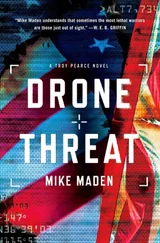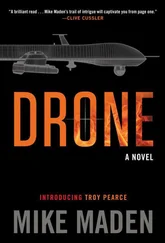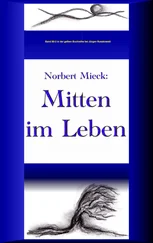“Why should I? It’s true, isn’t it?”
Diele darkened. “Doesn’t matter. Technically, he’s my boss and the head of my party. I’m supposed to watch out for him.”
“Technically, you are. Taking out Mossa takes one arrow out of my quiver, as per our agreement. But the truth of the matter is, you want Greyhill to get reelected so you can keep your job. I get that. But I want his job, too. So how about this? I keep hammering on this, and if he wakes up and finally sees the threats and starts to take action, we’ll all be better off. But if he doesn’t and the American public still supports him, he’ll still get reelected and you’ll still have your job. There’s a third possibility, of course.”
“What?”
“That I keep hammering, that it costs him the election, and in the spirit of bipartisan cooperation, I nominate you as SecDef or any other damn position you’d want in my administration.”
“Sounds like a step down to me.”
“Okay, then here’s a step up. I keep hammering at Greyhill from the outside while you pull your levers on the party on the inside, eroding confidence in his leadership. If my campaign is successful, Greyhill’s numbers will plummet before the convention, and you can ride in to rescue the nomination for your party.”
Diele’s face turned positively postcoital, brimming with satisfaction. “You and I always did work well together, didn’t we?”
“We’re the smart ones, Gary. We’re the ones that run the whole damn town.”
 50
50 
Tassili du Hoggar
Tamanghasset Province, Southern Algeria
12 May
After the wadi they traveled east two more days deeper into the desert, riding in the mornings, resting in the heat of the day, then pushing on past sunset. They were making good time. Mossa explained that they weren’t riding traditional pack camels, but smaller and faster Arabian war camels that could cover over a hundred miles per day if needed, but for now their pace was more relaxed. Pearce and the others rode most of the day but walked the last few miles in the cool of the evening to spare the animals, tied nose to tail by ropes slack with indifference.
The desert had changed since the wadi. Now they traversed gently sloping dunes gradually rising toward the jagged teeth of the Hoggar Mountains in the distance. This was more like the Sahara of his imagination, though still not quite as grand as he’d pictured.
They all walked in silence. The desert seemed to require it. Pearce felt humbled by it, the way a student waits for the master to speak. The setting sun behind the caravan threw long shadows in front of Pearce, the head of his image stretching past the Tuareg walking in front of him. It would be night soon. He was lost in the rhythms of the camel’s unusual gait. Right rear, right front, left rear, left front, step after silent step. Every horse he’d ever known walked just the opposite: right front, left rear, left front, right rear. There was something graceful, even hypnotic, in the strange, silent padding of the great white animals.
Troy had made no efforts to speak with Cella privately since they’d left the village. It was impossible to do so with her father-in-law hovering over her, and she had shown no interest in a private conversation. She seldom strayed more than a few yards from Mossa, especially now that there were no wounds or injuries to treat among the others. They seemed deeply connected, though they hardly spoke, either, except in the company of others. He’d noticed over the years that most Middle Eastern men seldom spoke to women, at least the older, traditional men, even when women were around, which was seldom. But Pearce suspected that their mutual silence was consensual rather than cultural. Cella probably felt very safe around Mossa. Perhaps their common grief had bound them together as well.
“What are you thinking?”
Pearce startled at Cella’s whispered voice. She had somehow managed to slip into step next to him without his noticing. Maybe he really had been hypnotized by his camel’s gait.
“Not much, really.”
“I love the desert this time of day.”
“It’s amazing,” Pearce agreed. The darkening blue sky was giving way to purple, and a swath of stars glittered in the vast expanse overhead. In the distance, a great rock arch towered over the sand, like a portal to another world.
“The Tuaregs are matrilineal. Did you know this?”
“Hadn’t really thought about it.”
Cella pointed at the jagged teeth of granite mountains looming far ahead. “Tin Hinan is the mother of all Tuaregs. She lived in the fourth century B.C. At one time she was buried out there.”
“But not now?”
“An American archaeologist stole her body in the 1920s with the help of the French army. Or so it is believed by some.”
“Sounds like an Indiana Jones movie.”
“I liked those movies. Especially the first one. I liked the woman in it, especially his woman. What was her name?”
“I don’t remember.”
“It doesn’t matter. I liked her.”
“Why did you like her?”
Cella’s face lit up. “Because when Indy accidentally found her in Tibet, she punched him in the face instead of kissing him.”
Pearce laughed. He jutted his chin out and thrust it toward her. “Knock yourself out.”
“Don’t tempt me.”
“I probably deserve it.”
“You definitely deserve it.”
They walked along in silence for a while.
“I always thought you would come back to Milan,” she finally said.
“I did, too.”
“What happened. A woman?”
“A war.” He took a few steps. “And a woman. Later.”
“You leave her, too?”
He shook his head. “She died.” It was hard for him to say that, even now, a decade later. He thought of Annie often, but strangely, not so much on this trip.
“Oh. I’m sorry.”
“You lost someone, too. Your husband.”
“Yes.” Now it was Cella’s turn to be flooded with painful memories.
“How?”
“He came back here to be with his father when the war broke out a few years ago in Mali.”
“He was a doctor?”
“Yes.”
“Killed?”
“Yes. A week after Dorotea and I arrived in Bamako.”
“I’m sorry. He must have been a good man.”
“He was. He deserved better.”
“Your daughter is beautiful. At least he lives in her.”
Cella’s eyes searched his. Pearce grew uncomfortable. What did she want to know? That he knew Dorotea’s eyes were the same color as his? That he hadn’t stopped thinking about it since the moment he put the girl on the plane? He looked away. They walked in silence for a while. Pearce wanted to catch up with Early, anything to get away.
“Have you been back to Lisbon?” she asked.
She said Lisbon casually, as if it meant nothing to her. Or him. After all, it had been six years before.
“Once. Business. You?”
“No.”
“No more UN work?”
“No. The clinic kept my husband and me busy enough.”
“How did you meet him?”
“He was a cultural attaché in Roma. We met at the opera, actually.”
“A cultured man.” Pearce hadn’t been to an opera since Milan.
“You almost met him. He would have come to Lisbon, but he had other business.”
Pearce thought he’d been slapped across the face.
“I didn’t know you were married when you were in Lisbon.”
“To my shame, I forgot I was married when I saw you again.”
Читать дальше

 50
50 











